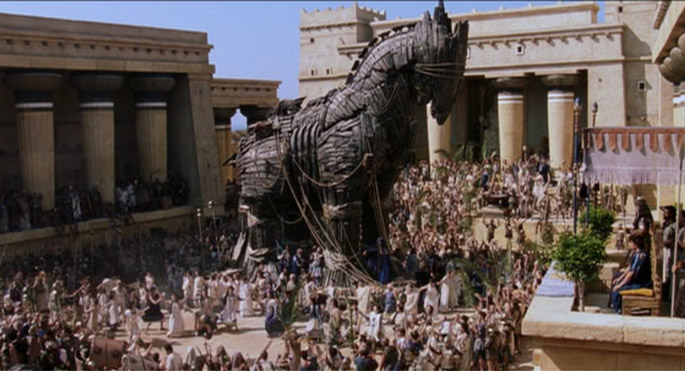The Trojan Horses of the Russian Regime
“We have essentially slid into a new cold war,” the Russian Prime Minister declared on Saturday at the Munich Security Conference. Perhaps Dmitry Medvedev’s strident statement was meant as an indication that relations between Russia and the West have bottomed out, and that the time has come for the two sides to start moving down a different, less fatal path.

The West has now got into the habit of placing no confidence in the rhetoric of the Russian regime, waiting instead for it to act – its actions, however, frequently failing to match its words. But any possible new rapprochement between the West and Putin’s Russia will be rendered far more complicated by the Kremlin’s studied disregard for virtually all international statutes. Two examples will suffice.
In November of last year, an unprecedentedly large-scale doping scandal broke out in the wake of a report by the World Anti-Doping Agency’s (WADA) Independent Commission, which determined that Russian athletes not only engaged in doping, but did so with the complicity of doctors, coaches and sports officials.
The report states that three days prior to the WADA tests, the heads of the RUSADA (Russian Anti-Doping Agency) Moscow laboratory destroyed 1,417 doping control samples, even though they had been instructed in writing by WADA, their “international superior,” not to do so. In addition, the investigation established that RUSADA was monitored by the FSB, and that a drugs laboratory had been staffed with FSB personnel during the Sochi Olympics – WADA being unaware of this change of command until the very last moment.
The scandal has afflicted every one of Russia’s athletes, who have been suspended from international competition and are close to being banned from Rio as well. The Russian regime, meanwhile, reacted to this “crisis in sport” in typical fashion.
Instead of putting his house in order, Minister of Sport Vitaly Mutko proposed to stop funding the fight against doping. “If the entire system needs to be shut down, we’ll happily do so,” he said. “Stop paying premiums, stop funding the Russian Anti-Doping Agency, the Moscow anti-doping laboratory. It’ll only save us money.” And a few days ago, the Izvestia newspaper duly reported that the Prosecutor General’s Office had “found no evidence for the accusations levelled against Russian athletes and authorities by the World Anti-Doping Agency”.
A second example illustrative of the entirely non-international nature of Russia’s place in the world is the recent reporting by Russian media that Mikhail Khodorkovsky was “wanted by Interpol.” Until recently, domestic institutions sufficed for the purpose of attacking him, but now that Khodorkovsky is based in London, the regime must needs find other means.
“The fact that the Russian Interpol Bureau had sent a tracing request for Khodorkovsky to the General Secretariat of the organisation emerged on February 11. While waiting for a response from Lyon, journalists rushed to check the Interpol database – only to find that Khodorkovsky’s name wasn’t there. Experts cautioned that it might take up to two months for the Secretariat to make the decision, but, as early as February 12, journalists were reporting that Interpol’s main office issued the following statement: “After considering the request, the Interpol General Secretariat has determined that it does not meet the rules of the organisation. In this case, the National Central Bureau of Interpol in Moscow was notified that Interpol cannot cooperate with the international police on this case.”
As per Article 3 of the Interpol Constitution – allegedly the key factor behind the organisation’s response – “[i]t is strictly forbidden for the Organisation to undertake any intervention or activities of a political, military, religious or racial character.” Nevertheless, employees of Russian Interpol clearly do not regard themselves as safeguarding the principles of the wider international Interpol; rather, they are primarily serving the interests of the Russian Ministry of Internal Affairs.
For as long, then, as the Russian government continues with its policy of trying to place a Trojan Horse inside international organisations, then Prime Minister Medvedev is absolutely correct, we are sliding into a Cold War.



